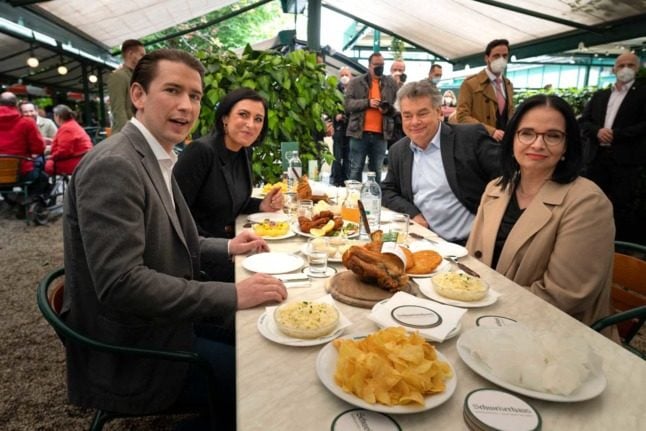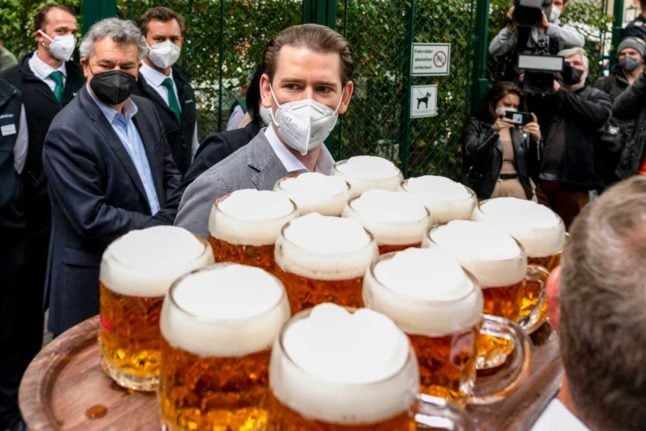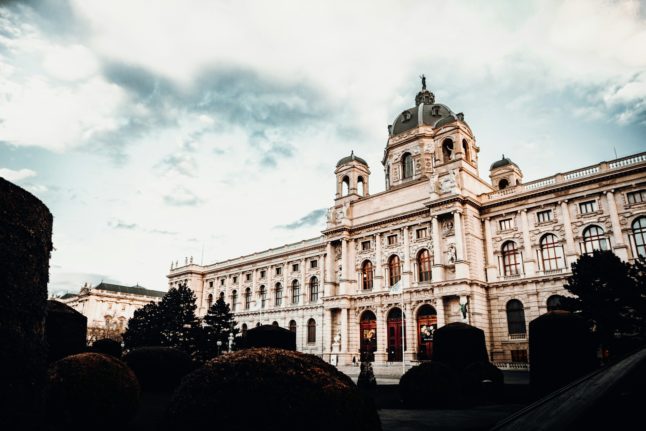To grab a seat, patrons needed to have a document proving that they’ve been vaccinated, tested negative or recently recovered from Covid-19.
Along with eateries, the Alpine EU member also opened hotels, sports, leisure and cultural venues including the renowned Vienna State Opera.
IN PICTURES: Austria celebrates in beer gardens after six-month lockdown ends
“It feels strange after so many months,” said 46-year-old Christoph Neubauer, an insurance broker enjoying a coffee with a colleague in the historic Cafe Central in downtown Vienna.
“But I really look forward to tonight, because I have a reservation for a restaurant, and I expect it to be busy,” he told AFP.
Many restaurants reported being fully booked, especially as new regulations limit the number of people per table to four indoors, with a mandatory minimum distance of two metres (6.6 feet) between groups.
EXPLAINED: What are Austria’s new coronavirus measures?
“Economically speaking, there’s no point in opening with this limited capacity, but we really wanted to light a beacon of hope by opening,” said Andrea Winkler, who runs Cafe Mozart and the Australian pub Crossfield’s.
“It’s really to give us and our staffers something to do — it’s really against our nature to do nothing all day long,” Winkler said.
Right across the street, underneath the Albertina, one of Vienna’s most popular art museums, Josef Bitzinger, whose family has run Augustinerkeller restaurant since the 1950s, said though many patrons were excited about the reopening, overall the atmosphere was still subdued.

“I was expecting a big hoorah, but it doesn’t look like it — not yet,” he said, adding the masses of tourists who usually descend upon downtown Vienna were still missing, while some Austrians also remained hesitant to go out.
“But I think this will improve day by day now, and by June or July, hopefully it’ll all be good again,” he told AFP. But the new rules may also be putting off some people.
“It’s complicated. I wanted to get a coffee, but I’m still waiting for my test results,” Brigitte Gruber told AFP at Naschmarkt, an outdoor market in downtown Vienna.
She added the new rules “obliged people to do things that they don’t want to do, such as getting vaccinated”.
A third of Austria’s nine million people have been vaccinated so far. The country has recorded some 10,500 deaths since the start of the pandemic.




 Please whitelist us to continue reading.
Please whitelist us to continue reading.
Member comments